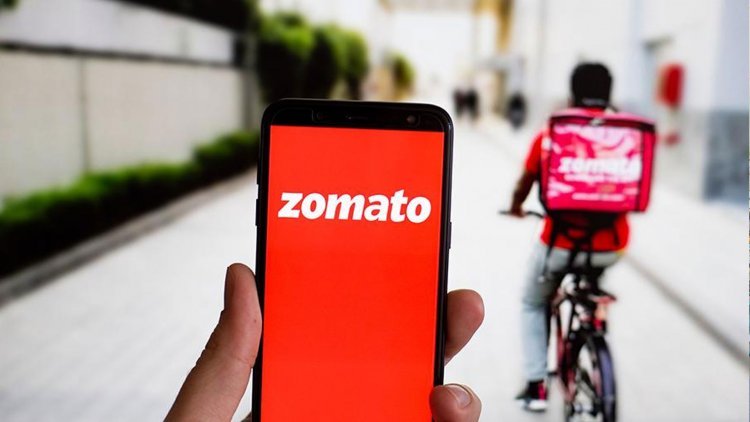In the midst of a sell-off, Zomato distributes 4.66 crore shares to its employees for Re 1
ESOPs granted to Deepinder Goyal, co-founder and CEO of Zomato, cost the business Rs 387 crore in the second half of FY22.

The food delivery startup Zomato has distributed 4.66 crore shares from its pool of ESOP (employee stock option plan) shares at an exercise price of one rupee, despite its shares losing 21 percent of their value over the past two days owing to sell-off pressure.
The company said that the nominating and pay committee of its board of directors had approved the distribution of 4,65,51,600 equity shares to workers upon the exercise of vested stock options in a filing with the exchanges on July 26.
The total allotment is valued at about Rs 193 crore at the current share price levels. At the time of writing, Zomato shares were trading for Rs 41.65 per share.
Analysts had warned that Zomato's share price could be under pressure this week due to the one-year lock-in period for roughly 613 crore shares, or 78% of the company's equity, having ended last week on Saturday (July 23).
Despite the fact that Zomato's market capitalization has decreased below its most recent private market valuation of $5.5 billion, experts anticipate that some of the company's significant pre-IPO investors may sell part of their interests.
Deepinder Goyal, co-founder and CEO of Zomato, received ESOPs at a cost to the business of Rs 387 crore in the second half of FY22. The total ESOP expense for these incentives to the company's three key managerial professionals (KMPs) for the entire FY22 was Rs 779 crore.
According to Zomato's annual report for FY22, the company spent Rs 753 crore of this total sum as a result of the CEO's stock compensation.
CFO Akshant Goyal and corporate secretary Sandhya Sethia are the other KMPs.
The CEO of the business announced in a recent internal message that he would donate over Rs 700 crore of the income from his ESOP to the Zomato Future Foundation in FY22. The funds would go toward paying for the children of the delivery partners' schooling.
The ESOP practises of businesses like Zomato, Paytm, and Policybazaar that went public last year have drawn criticism from a number of experts. The founders and top executives of these enterprises have received sizeable ESOP awards despite the fact that the businesses continue to operate at a loss.
Employee benefits costs, which include the price borne by the companies because stock options are granted to employees, have skyrocketed in Q4 (January-March). Employee spending increased by 148 percent at Paytm to Rs 863 crore, 112% at Zomato to Rs 407 crore, and 94% at Policybazaar to Rs 374 crore. The amount increased by 32% to Rs 91 crore for Nykaa, which has an ESOP scheme that is relatively conservative.
The loss-making IT businesses have started using the term "adjusted EBITDA," which excludes the cost of ESOPs from EBITDA (earnings before interest, tax, depreciation, and amortisation), in recent quarters as a way to address concerns about profitability.
For instance, Zomato waxes lyrical in its letter to shareholders about how this measure has been growing quarter over quarter, and Paytm has stated that it would become profitable in terms of "adjusted EBITDA" by 2025.




 admin
admin 




















